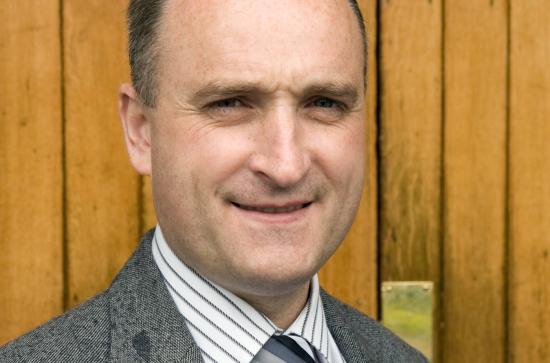
In August 2007, Mark Boyle came to the Department of Geography at Maynooth University and now after a glorious decade he leaves us this coming January for a new post as Director of the Heseltine Institute for Public Policy and Practice at the University of Liverpool. Mark was Head of Department for his first five years at Maynooth and after a year’s sabbatical he spent three years as Director of Maynooth University’s National Institute of Regional and Spatial Analysis. Throughout his decade at Maynooth, Mark continued to develop his scholarship with two books, Human Geography: A Short Introduction (Wiley, 2015) and Metropolitan Anxieties: On the Meaning of the Irish Catholic Adventure in Scotland (Ashgate, 2011), some 21 articles, and 8 book chapters. At Maynooth, Mark extended his research on the Irish diaspora and he contributed to public and policy debate about the value of an Irish diaspora strategy, including about a dozen policy papers on the topic. He also brought sixteen research grants to Maynooth, and beyond the diaspora work, many of these were about urban development and deprivation policies. A recent article on Urban Studies listed Mark as one of top 50 most productive scholars in Urban Geography for the period 1990-2010 and the only one based in an Irish university at that time (Lily Kong and Junxi Qian, ‘Knowledge circulation in urban geography/urban studies, 1990-2010: Testing the discourse of Anglo-American hegemony through publication and citation patterns,’ Urban Studies (2017)). This research strand culminated in the Urbact project with Mark as Ireland’s contact point for this initiative promoting integrated and sustainable urban development.
Mark’s work is generally collaborative – some 15 of his 21 articles while at Maynooth are co-authored, including many with colleagues, particularly with Rob Kitchin and Cian O’Callaghan. Although a lot of his work has a policy focus, there is always also a clear ethical focus. This is perhaps most clear in the way he develops a political theology in his work, drawing upon the work of Jean-Paul Sartre and of Giorgio Agamben. And, again, some of this has been in collaboration, in this case with Audrey Kobayashi. Audrey will join us for our brief consideration of Mark’s contribution with an afternoon of academic papers and panels on Monday 9 October, Rocque Laboratory, 2.00-5.00pm.
Alongside his research and his academic leadership, Mark has been a legendary teacher in our university. From the student Facebook adoration to the continual requests for more Mark Boyle please, the popularity of Mark’s teaching is unrivalled. His first-year lectures have provided the basis for his Human Geography book and we can see in the book that his approach to teaching is to take up really big questions and then find ways to answer them geographically. The chapter titles are almost enough evidence: Watersheds in Human History: Humanity’s Triumph over Nature; An Unequal but Changing World: Geographies of the World Capitalist Economy; The Rise and Fall of Great Powers: Nation States, Empires, and Geopolitics; The West in the Cultural Landscape: On Civilized Spaces and Unruly Places; The Modern Rise in World Population from 1750; A Planet in Distress? Humanity’s War on the Earth; Homo Urbanus: Urbanization and Urban Form from 1800; Global Migration: Moving, Setting, Staying Connected; At Risk: Society and Natural Hazards; and Towards a Postcolonial Human Geography. The spirit in which Mark teaches is perhaps best given by his own remarks in introducing the book where he expresses a ‘wish to acknowledge the contribution of students who […] have helped me to sharpen my understanding of topics and clarify how best to communicate ideas’ (p. xix).
Gerry Kearns, 1 October 2017
Preliminary Programme for the Markfest
2.00. Introduction
2.10. Audrey Kobayashi, Queen’s University, Kingston, Ontario, Canada, ‘Why Sartre, Why Now?’
Audrey is Research Professor at Queen’s and has been collaborating with Mark on a series of papers about colonialism and the contribution of Jean-Paul Sartre, including their paper of 2015 in Environment and Planning D. Society and Space – ‘In the face of epistemic injustices?: On the meaning of people-led war crimes tribunals,’ and another of 2011 in the Transactions of the Institute of British Geographers, ‘Metropolitan Anxieties: a critical appraisal of Sartre’s theory of colonialism’; and, in an edited collection of 2014, ‘Colonizing colonized: Sartre and Fanon’.
3.00. Panel: Working with Mark as a student: Charlie Thiessen, Rachel McArdle, Dean Phelan, Aoife Delaney [virtual], Joe Robinson
Charlie is a current Masters student who recalls Mark’s undergraduate teaching, Aoife, Rachel, Dean, and Joe are currently graduate students working with Mark.
3.30. Working with Mark as a colleague: Adrian Kavanagh, Karen Till, Rob Kitchin
Adrian is currently teaching a Part Two class with Mark – Approaches to Human Geography. Karen currently enjoys having Mark as her academic mentor and line-manager. Rob has worked alongside Mark both in Geography and in NIRSA and was also instrumental in attracting Mark to Maynooth.
3.50. Pause
4.00 Mark Boyle, Sartrean Geographies
In addition to the papers with Audrey, Mark’s publications on Sartrean Geographies include: ‘Beyond the sigh of the oppressed creature: A critical geographical enquiry into Christianity’s contributions to war and peace’ in the Annals of the Association of American Geographers (2010); and in the same journal for 2005, ‘Sartre’s circular dialectic and the empires of abstract space: a history of space and place in Ballymun, Dublin’.
5.00 Vote of thanks, Philip Nolan, President of Maynooth University.
